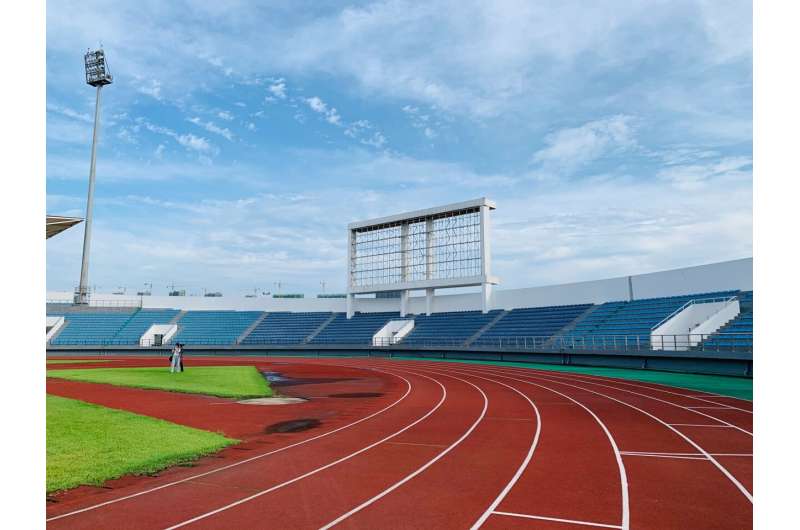This article has been reviewed according to Science X's editorial process and policies. Editors have highlighted the following attributes while ensuring the content's credibility:
fact-checked
trusted source
written by researcher(s)
proofread
With another case of abuse in elite sports, why are we still waiting to protect NZ's sportswomen from harm?

The ten-year coaching ban handed down this week by Athletics New Zealand to national pole vault coach Jeremy McColl is merely the latest in a long line of investigations to reveal the failure of sports organizations to protect sportswomen.
The independent investigation into McColl found "serious misconduct" over a "number of years" with women athletes under his supervision. This included harassment, "inappropriate sexual references" (including through social media and texting) and poor response to injuries.
The case is both unique and sadly familiar. At least 12 New Zealand sports bodies have come under scrutiny in recent times for cultures where sportswomen experienced abuse. These include Cycling New Zealand, Rugby New Zealand, Gymnastics New Zealand, Canoe Racing New Zealand, NZ Football and Hockey New Zealand.
This surely suggests there has been—and likely still is—systemic gendered abuse across New Zealand's sport system. Urgent action is clearly needed.
High rates of abuse
Maltreatment and interpersonal violence—including neglect and physical, psychological and sexual violence—are common at all levels of sport for women, men and children.
One study of 1,665 elite athletes in Germany, the Netherlands and Belgium found extremely high rates of reported physical violence (25%), sexual violence (31%) and psychological or emotional violence (72%).
Sportswomen were found to experience abuse more than men, particularly sexual violence. An Australian study found 82% of 886 people surveyed had experienced some form of interpersonal violence in sport as a child. Rates were higher among girls and gender-diverse individuals.
Over the past three decades, researchers have examined various forms of gender-based and sexual violence in sport, usually perpetrated by male coaches, but also by others in the wider "support" teams.
The coach-athlete relationship inevitably involves an uneven balance of power. Abuse of that imbalance leads to significant harm and negative health impacts, with women athletes often reluctant to report the abuse. Some simply withdraw from sport altogether.
A global problem
These abusive relationships tend to exist within hierarchical, patriarchal and "win at all costs" sporting cultures. Organizational structures and systems often work to enable harmful practices.
But research shows gender-based violence is also increasingly happening online. And it is not only women athletes who experience it, but also women in other roles, such as officials, administrators and volunteers.
None of this is specific to New Zealand. Investigations have revealed gender-based violence across a range of sports internationally, where systems consistently fail to protect and support women.
Furthermore, it remains a significant blind spot for many sports organizations and professionals. Legal liability and protecting the sport rather than the athlete become priorities. Change can be sluggish, often lacking transparency and accountability.
Slow progress
The better news is that some governments and international sports organizations are developing safeguarding policies, procedures and toolkits.
An EU-led initiative has produced a good practice guide for sports bodies wanting to support athletes affected by sexual violence. And earlier this week, UNESCO published a handbook offering practical ways to address violence against women and girls in sport.
The International Olympic Committee also offers a "toolkit" to help national Olympic committees and international sports federations develop better policies and procedures. Various other organizations are working towards the same goals.
Despite such initiatives, many sports organizations still struggle to respond appropriately. In particular, it is vital that athletes themselves are involved in developing safeguarding policies.
Researchers and health professionals are increasingly calling for initiatives that center the athlete and integrate holistic knowledge about trauma into policies, procedures and practices. We also cannot ignore the ways race, ethnicity, disability, gender identities and sexuality may amplify the risks and harms of abuse in sport.
Change has to be urgent
Meaningful change will require education for all those working in sport, athlete-centered policy and practice, and safe reporting pathways. Redress has to prioritize the needs of the abused.
Because women can be so reluctant to report abuse in the first place, it has been suggested a "carrot not stick" approach might work best. Teams and organizations that can show evidence of a positive, safe and healthy culture might be rewarded in future funding cycles, for example.
To that end, High Performance Sport New Zealand has launched a NZ$273 million strategy that includes prioritizing athlete well-being. Yet it still doesn't address the gender dynamics at play here.
Education programs aimed at coaches and support staff working with women should be mandatory. Sportswomen must be able to report any concerns without fear for their careers or well-being. And anyone who observes questionable behavior must have appropriate channels to report their concerns.
Minister of Sport Grant Robertson announced an independent Sport Integrity Working Group last year. So far, though, we've seen no actions or stated commitment to safeguarding women.
Everyone deserves access to a safe sporting environment, and safeguarding women in sport is an urgent issue. We can't sit back and wait for the next headline about another national sports organization or another male coach under investigation. The time for change is now.
Provided by The Conversation
This article is republished from The Conversation under a Creative Commons license. Read the original article.![]()




















